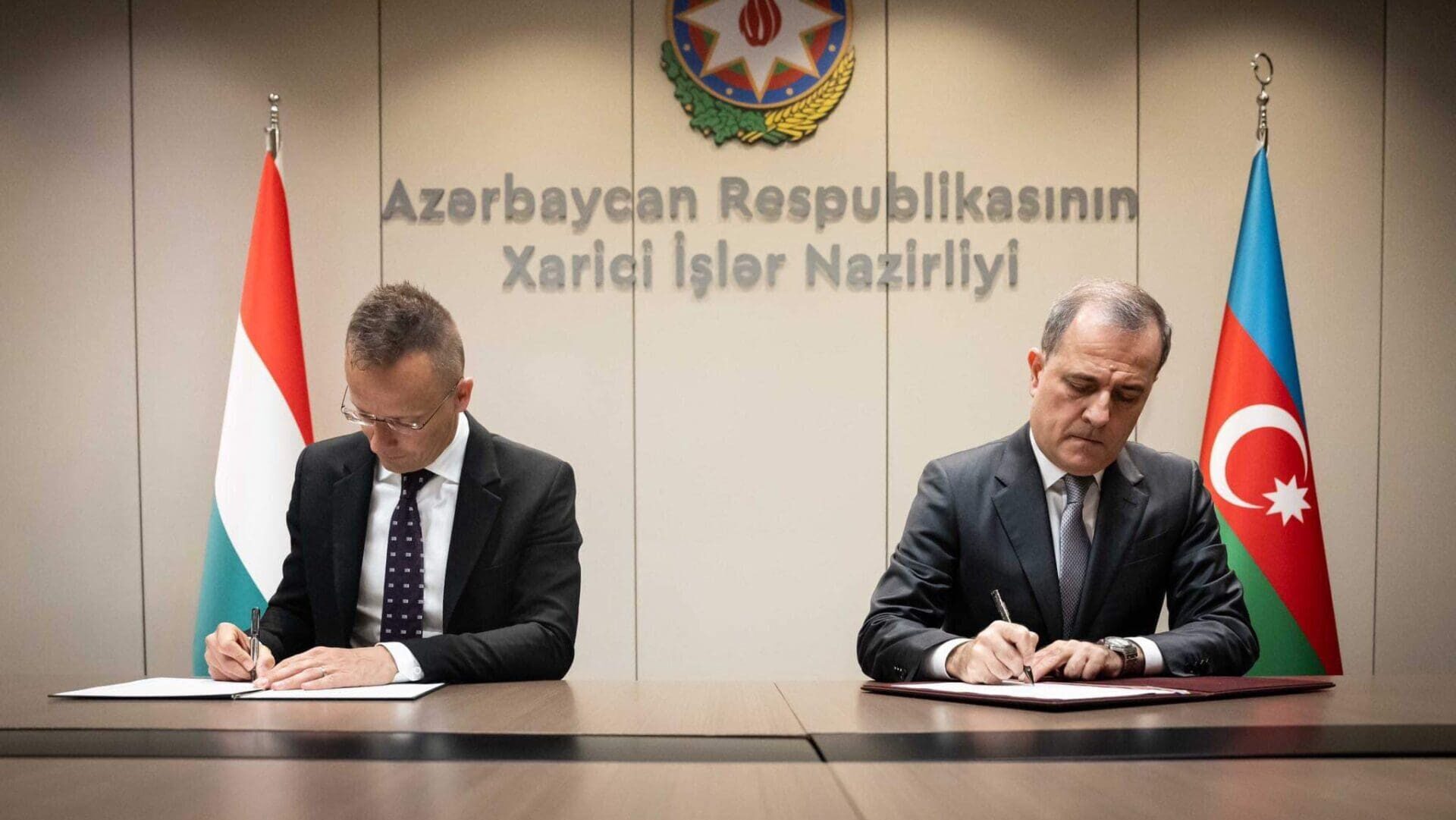Hungary is set to buy a stake in Azerbaijan’s largest natural gas field, the Shah Deniz field, as announced by Hungarian Minister of Foreign Affairs and Trade Péter Szijjártó on Wednesday during his visit to Baku. He stated that this move will significantly enhance Hungary’s security of natural gas supply. ‘In practice, we will have ownership of a substantial portion of our natural gas needs,’ Szijjártó said.
Shah Deniz is one of the largest natural gas deposits, not only in Azerbaijan but in the world. Its reserves are estimated at between 1.5 to 3 billion barrels (240 to 480 million cubic metres) of oil equivalent, including 50 to 100 billion cubic metres of gas. The field covers approximately 860 square kilometres. Stretching over 140 square kilometres, the reservoir is similar in size and shape to Manhattan Island. Shah Deniz was discovered in 1999, and production started in 2004. The main shareholder is the British multinational oil and gas company BP, but Russian Lukoil and Turkish TPAO also have shares in the field—now joined by the Hungarian MVM Group.
FM Szijjártó emphasized that the current situation represents
a historic development in Hungary’s energy supply,
offering the country significantly greater protection against major price fluctuations and uncertainties in the energy market. The agreement will also position Hungary as a major player in the EU gas supply, as a substantial portion of the gas extracted from Shah Deniz is transported to Europe via the Southern Gas Corridor.
In July 2022, the European Union and Azerbaijan signed a cooperation agreement under which the South Caucasus state will more than double the amount of natural gas it supplies to the EU by 2027. This will increase the supply to at least 20 billion cubic metres.
Azerbaijan is a relatively new player in the European energy market, with only one EU country, Greece, having bought gas from Baku before 2020. Despite this, the South Caucasus state has long been considered a potential energy supplier by Western leaders. In 2011, the European Commission backed the construction of the Southern Gas Corridor, the largest energy project in Azerbaijan to date. The pipeline started operations in 2020, but in 2021, Azeri gas accounted for just over 2 per cent of the EU’s total gas imports, compared to Russia, which contributed around 45 percent—155 billion cubic metres.
The partnership between Hungary and Azerbaijan is not that recent, as Szijjártó noted, dating back 14 years. However, in recent years, especially after the outbreak of the war in Ukraine, Baku has become a key player in Hungary’s energy supply. This year is particularly significant in this respect, as Hungary purchased its first gas from Azerbaijan (50 million cubic metres) in 2024. ‘By July, a joint venture between Azerbaijan, Georgia, Romania, and Hungary will be established, which will be responsible for bringing green energy produced in the Caspian region to Central Europe,’ Szijjártó continued.
‘As Azerbaijan is a new player in our energy supply, this situation will provide us with a much more stable and secure energy supply,’ the foreign minister stressed.
Diversification at Its Best
Despite criticism from Brussels,
Hungary is making extraordinary efforts to reduce its energy dependence on Russia.
The recent agreement with Azerbaijan is a prime example, but there have been several agreements with other countries recently.
As reported by Hungarian Conservative, natural gas started flowing from Turkey to Hungary on 1 April this year, with the first shipment amounting to 275 million cubic metres. This is a significant step towards diversifying the sources of Hungarian natural gas imports and marks a further success of the Eastern Opening policy, FM Szijjártó highlighted at the time.
Also in 2024, the Hungarian government reached an agreement with Qatar to purchase liquefied natural gas (LNG) from the Gulf state starting in 2026. ‘Qatar will significantly increase its LNG exports from 2026, and based on the previous political agreement, inter-company negotiations on the supply of LNG to Hungary have started. This is an important development in guaranteeing Hungary’s long-term energy security,’ Péter Szijjártó underlined.
Read more on Hungarian energy diversification efforts:







